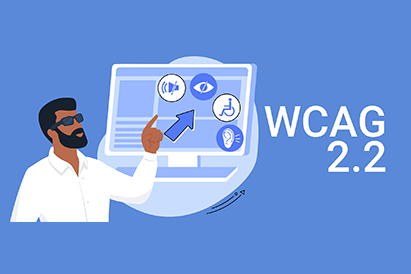Translation and Localization

Overview
In today’s world, remote learning and development have become crucial due to the changing concept of traditional offices and the ease of communication over distance. As a result, virtual training and eLearning platforms have become the norm for companies and educational institutions.However, managing learners from different cultural backgrounds and language proficiencies can be challenging. This is where localization can help by adapting content to meet their specific needs and preferences. Localizing courses can foster an inclusive environment and boost productivity by ensuring that each learner feels valued and engaged.
What is localization?
Localization involves translating and adapting training content for a specific culture and language, which is more than just a straightforward translation of text. It also involves transforming imagery, tone, colors, currencies, and more to account for cultural and regional nuances. The goal is to ensure that the training is comprehensible and culturally appropriate for the target audience. When localizing eLearning content, attention is needed on written content, graphics, formatting, audio and video, and user experience elements.Benefits of Localization
When training materials are adapted to meet the specific needs of a particular region or market, learners tend to feel more comfortable and motivated while learning. Here are the some benefits of localizing your content.-
Native language learning enhances employee performance
Studies have shown that employees who learn and communicate in their native language are more likely to understand and retain information, leading to increased job performance, confidence, and job satisfaction. Additionally, a comfortable workplace environment leads to employees engage in team activities and collaborate with their colleagues. -
Localization helps to eliminate cultural disparities
Localization can help to eliminate cultural disparities by ensuring that everyone on the team has access to the same information and resources. Consider a course on workplace ethics for employees in different countries. If the course is not localized, learners from different regions may misunderstand the content due to varying cultural norms and values. For instance, a scenario portraying a male boss hugging a female subordinate to congratulate her on a job well done might be perceived positively in some cultures but considered inappropriate in others. By localizing the content to suit the cultural expectations of each region, you can ensure that the learners receive the intended message and apply the learning effectively. -
Employee retention
Investing in e-learning localization can significantly boost your employees’ job satisfaction and performance, leading to higher retention rates. With turnover rates at an all-time high, retaining your top talent is crucial, and offering tailored learning experiences can help keep them engaged, motivated, and committed to your organization’s success.
-
Increased Market Reach
Localization can help companies to expand their reach into new markets, both domestically and internationally. -
Enhanced Brand Image
By offering localized content, companies can demonstrate their commitment to diversity, inclusion, and customer service. This can help to enhance their brand image and reputation and can differentiate them from competitors. -
Improved SEO
By offering localized content, companies can improve their search engine rankings in local markets. This, in turn, can improve lead generation which results in higher sales and revenue. -
Regulatory Compliance
Localization can help companies to comply with local laws and regulations, such as those related to language requirements, product labeling, and data privacy.
How can Zilliobit support you in Localization for your training programs?
Zilliobit specializes in providing language services to help clients achieve global success. With over 100 hours of training localization experience in more than 20 languages and dialects, we have the expertise to customize and deliver language solutions that meet your specific needs.We guarantee quick turn-around times with our Localization practice, thanks to our team of native translators and voice-over artists. Our Localized courses are thoroughly reviewed by external linguistic experts to ensure the highest quality. To expedite integration, we convert course content to XLIFF (XML Localization Interchange File Format), which is a widely used standard format for localizing data across all major localization tools. XLIFF files also serve as a translation library, with everything stored in a single file.
Contact us today to learn how Zilliobit can be your reliable localization vendor.
Thinking about localizing or translating your content?
Let’s Talk


